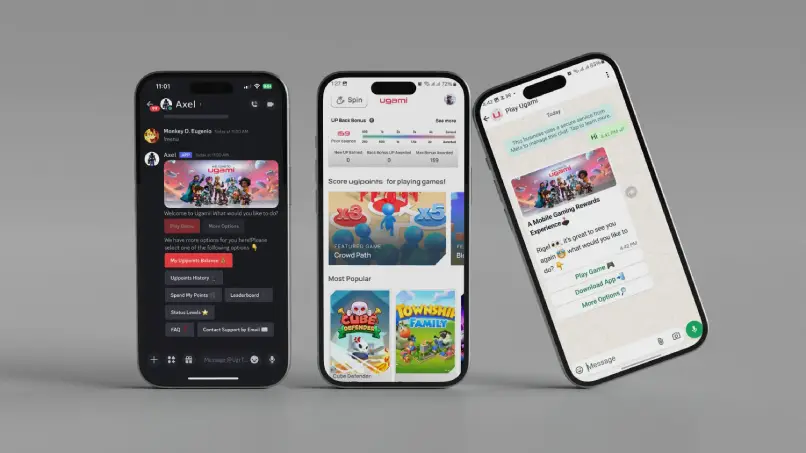Play to earn rewards: a easy way to earn while having fun in your favorite games
Play to earn rewards: a easy way to earn while having fun in your favorite games
Blog Article
Why Play-to-Earn Rewards Are Altering the Way You Play and Earn
The introduction of play-to-earn versions signifies a noteworthy change in the pc gaming landscape, welcoming players to explore not only the enjoyment worth of video games but also their prospective as income-generating systems. Recognizing these characteristics raises important concerns concerning the future of pc gaming and the effects for both gamers and developers alike.
Development of Play-to-Earn Designs
Over the last few years, the video gaming sector has actually observed a substantial makeover with the emergence of play-to-earn models, fundamentally modifying just how gamers engage with digital environments. This innovative method allows players to gain tangible incentives via their in-game tasks, developing a change from standard video gaming paradigms where enjoyment and competition were the key inspirations.
Play-to-earn designs take advantage of blockchain innovation and non-fungible tokens (NFTs) to provide players with possession of in-game possessions, which can be traded or offered for real-world currency. Because of this, gamers are incentivized to invest effort and time into video games, fostering a sense of firm and economic possibility. play to earn rewards. This change has attracted a varied gamer base, including those that might have previously watched pc gaming as a simply recreational task
A number of platforms have actually emerged, showcasing effective applications of this model, such as Axie Infinity and Decentraland. These systems have not only generated considerable income yet likewise sparked conversations around the sustainability and principles of such financial systems. As play-to-earn designs continue to progress, they promise to redefine the partnership between gamers, developers, and the more comprehensive digital economic situation, paving the means for a new period in video gaming.
Advantages for Gamers
As players involve with play-to-earn models, they unlock an array of benefits that expand beyond simple home entertainment. Among the most considerable benefits is the capacity for monetary incentives. Unlike conventional pc gaming, where gamers invest time and cash without tangible returns, play-to-earn systems enable players to gain copyright or in-game assets that can be transformed to real-world worth. This economic reward not just enhances engagement however additionally fosters a sense of possession over the pc gaming experience.
Furthermore, play-to-earn designs promote neighborhood building among players. Players commonly team up to attain common objectives, consequently cultivating social connections that enrich the overall experience. This feeling of area can bring about participating gameplay, where players share techniques and resources, enhancing both individual and team success.
Additionally, these designs can democratize access to pc gaming by enabling players from diverse financial histories to benefit monetarily. By joining play-to-earn ecosystems, people can get skills and knowledge concerning blockchain innovation, additional broadening their job chances in the growing digital economic situation. Eventually, the benefits for players prolong well past gameplay, affecting their social, economic, and instructional landscapes favorably.
Challenges in the Environment
While the play-to-earn ecosystem offers significant possibilities, it is not without its difficulties. One major worry is the volatility of in-game currencies and possessions, which can lead to uncertain profits for players. Fluctuations in worth can deter possible players that look for steady revenue streams - play to earn rewards. Furthermore, the intricacies of blockchain technology might confuse individuals not familiar with digital money, creating barriers to access. find out here
Another obstacle is the danger of rip-offs and illegal systems that can afflict the ecological community. Players may come across deceitful platforms guaranteeing high benefits yet ultimately causing economic loss. Guaranteeing depend on and protection is essential for the long-lasting feasibility of play-to-earn versions.
In addition, the environmental impact of blockchain video gaming can not be ignored. The power intake linked with mining and purchase handling elevates ethical questions about sustainability. Game developers need to find a balance between gratifying players and reducing environmental footprints.
Finally, the regulative landscape is still developing, positioning prospective risks for developers and players alike. Uncertain lawful structures can prevent technology and restrict the growth of play-to-earn environments. Attending to these difficulties is vital for understanding the full potential of this transformative gaming standard.
The Function of Blockchain Innovation
Blockchain technology functions as the foundation of the play-to-earn environment, attending to a number of the challenges formerly detailed. By utilizing decentralized ledgers, blockchain makes certain openness and safety in transactions. Gamers can with confidence earn and trade in-game assets, recognizing that possession is verifiable and not subject to adjustment.

Tokenization of possessions plays a critical role, providing gamers real ownership of their in-game things, which can be gotten, sold, or traded on numerous markets. This encourages a dynamic secondary market, where players can monetize their abilities and time purchased the game.
Furthermore, blockchain modern technology makes it possible for interoperability between various games and systems, allowing players to bring their assets across different environments. This versatility not just enhances user experience but also advertises why not try these out a much more inclusive video gaming atmosphere, eventually improving the landscape of pc gaming and earning.
Future Fads in Pc Gaming
The video gaming market is on the edge of a transformative development, driven by emerging innovations and changing gamer assumptions. As play-to-earn models gain traction, gamers are increasingly seeking immersive experiences that mix home entertainment with tangible benefits. This shift is triggering programmers to introduce, focusing on producing appealing gameplay that promotes area and communication.
One remarkable fad is the combination of digital reality (VIRTUAL REALITY) and enhanced reality (AR), improving the pc gaming experience by providing deeper immersion and interactive environments. In addition, improvements in man-made knowledge are allowing more sophisticated non-player characters (NPCs) and adaptive gameplay, tailoring experiences to specific gamer preferences.

Conclusion
In final thought, the play-to-earn design is considerably changing the pc gaming landscape by enabling players to acquire real-world worth from their in-game tasks. This standard change not only boosts gamer interaction and investment however additionally elevates difficulties that need to be dealt with to make sure sustainability within the environment. As blockchain innovation remains to facilitate possession of electronic properties, the future of pc gaming promises more technology and opportunities for players throughout diverse histories.
Report this page